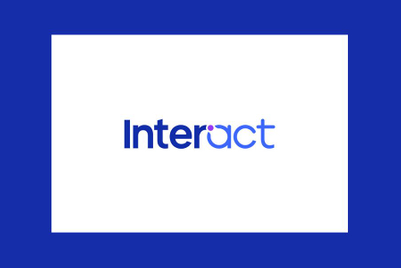
| PARTNER CONTENT |
Text: Erica Schmidt, global CEO at Matterkind and chief culture officer at Kinesso
To understand why IPG launched Matterkind, a brand’s partner in addressable activation, you first have to comprehend the history of IPG’s efforts when it comes to putting data at the core of the company. With a number of data-based acquisitions across the industry over the course of the last five years, it’s clear the future of this industry is data-centric. IPG’s most significant foray into the advertising data race was in the $2.5B acquisition of Acxiom in 2018, which stemmed from the need for a data layer that could stretch across all of IPG. IPG then launched Kinesso in October of 2019 to act as the application layer sitting on top of the data layer, enabling IPG agencies to engage with Acxiom (and other third-party data) to make their client’s marketing smarter, faster and more efficient.
In under two years IPG made some big bets on how it was going to lead the industry through data-driven marketing. But there was still one piece missing: the need for an evolution in activation. Acxiom provides the highest quality ethical data and Kinesso then creates insights through applications leveraging that data, but there was still an opportunity to pivot towards audiences, allowing for activation across all addressable channels. Cadreon had been known as the programmatic division of IPG Mediabrands, but it was time for an evolution. This need was made more pressing by economic and societal challenges that have thrust the industry into a precarious position as brands take more conservative stances on their spending in an effort to protect their own businesses. This means marketing dollars had to work harder than ever.
When Cadreon was subsumed by the Matterkind brand last month, there was a clear vision for what this change indicated. For one, the idea of programmatic buying no longer cut it. We are spearheading a future that is all-addressable, in which we circumvent inefficiencies across the ecosystem and avoid over-saturation of the same audiences. The effort to apply frequency caps for audiences is not just to save our client’s from wasted spend, but also out of respect for people who get frustrated being served the same ad again and again – it also speaks to the ‘kind’ portion of our new name.
According to a study by the Advertising Research Foundation, “the value of repetitive impressions served to a single user starts to decline after a certain point; actually having a negative impact on sales in the extreme situation that a banner ad reaches a user 40 times in a month. Marketers are wasting ad spend on ineffective advertising that can ultimately have an adverse effect on campaign performance.”
While Matterkind has ambitious visions for an all-addressable future, there is no denying the challenges of connecting disparate data points and an irregularity across brands in terms of the sophistication of their data stacks. There is also a disparity in how clients want to work with adtech in terms of services versus subscription offerings. We look to a proprietary maturity canvas to help determine a client’s readiness for certain technical deployments and offer a nimbler approach to working with clients, allowing for greater opportunities to support in-house teams or other fluid ways of working.
The findings of a recent Forrester Wave, Global Media Agencies, Q2 2020 supports this approach: “as media management services become disintermediated by technology and in-house operations, media agencies that give clients the capacity to scale precision content, integrated agency solutions, and deeper innovations with AI and automation are better positioned to deliver growth solutions.”
A final key differentiator for Matterkind is a focus on transparency. Cadreon was always a leader in the space, eschewing non-transparent tactics utilised by competitors. Today, Matterkind leads its engagements with a digital responsibility-first mindset, and an increased focus on the ethical use of data, going beyond government regulation to respect and optimise the everyday person’s ad experience. We believe in prioritising user experience to create the strongest brand relationships.
Ultimately, the launch of Matterkind represents the third step in IPG’s data strategy and is already showing promising returns in the form of new business wins and an increase in existing client interest. We’ll continue to innovate our product offering and ways of working as Matterkind extends its offerings across the group to help clients achieve an all-addressable future.


.jpg&h=334&w=500&q=100&v=20250320&c=1)
.jpg&h=334&w=500&q=100&v=20250320&c=1)
.jpg&h=334&w=500&q=100&v=20250320&c=1)



.png&h=334&w=500&q=100&v=20250320&c=1)

.png&h=334&w=500&q=100&v=20250320&c=1)








